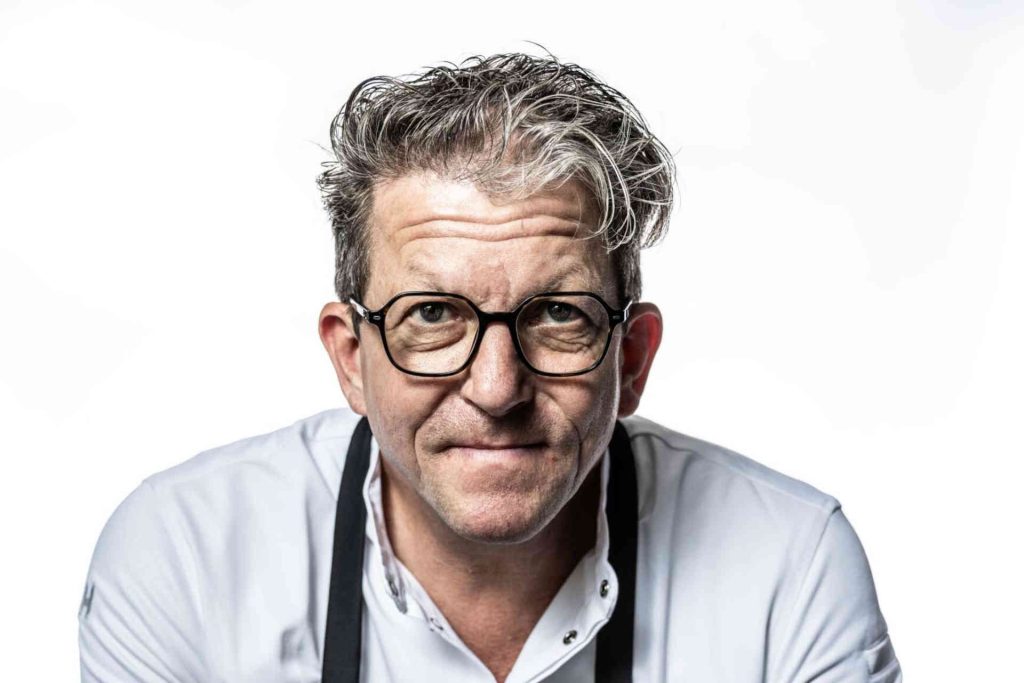
| Editorial team
“Sustainability has been a central guiding principle from the very beginning.”
Knorr Professional High Convenience is more than just a product line. It is the result of intensive collaboration and culinary passion. In this interview, Dirk Rogge, Head of Culinary Consulting at Unilever Food Solutions, provides exclusive insights into the creation, challenges, and future of the new plant-based range and explains how one idea turned into seven completely different dishes.
The challenges in the catering industry continue to grow: staff shortages, cost pressures, and increasing guest expectations are the main reasons. Unilever Food Solutions' answer is Knorr Professional High Convenience. Behind the seven plant-based menu components is a story full of culinary ambition and teamwork.
GENUSSPUNKT: Mr. Rogge, how did the idea for High Convenience come about?
DIRK ROGGE: The idea originated within an internal team from various departments at Unilever Food Solutions that was specifically addressing the challenges of the foodservice market. Together with colleagues from portfolio marketing, sales, the food industry, finance, and our culinary team, we developed various flexible concepts. It quickly became clear that there was a need for high-quality, time-saving menu components that were guaranteed to succeed. That's how the idea for the High Convenience line was born.
What was the development process like? What particular challenges did you encounter?
We deliberately based the recipe development in Germany, close to the everyday kitchen environment of our target groups. This was a challenge, as Unilever Food Solutions products are usually developed by global teams. In addition, strict microbiological requirements and standards had to be met. In addition to taste, the focus was primarily on developing recipes that could be produced in large quantities while maintaining consistent high quality.
For the implementation, we had Alexander Rohrberg from our culinary team on board, an experienced expert who knows the requirements of professional kitchens as well as the development of creative, flexitarian recipes. As a team, we designed and tested over 20 recipes, revised them several times, and discarded some of them. This intensive process with many feedback loops shows how important expertise, teamwork, and a clear development logic are.
What role did sustainability play in the development of the high-convenience range?
Sustainability was a central guiding principle from the very beginning. The range consistently focuses on plant-based ingredients and sustainable raw materials, which significantly reduces its ecological footprint. Thanks to long shelf lives, better use of goods thanks to optimized packaging sizes, and thermal preparation, we also actively help to minimize food waste and energy consumption. This is complemented by recyclable and compostable packaging. In this way, we combine culinary enjoyment with responsibility for the environment and climate protection.
How does your range differ from that of your competitors?
We didn't want to rehash mainstream dishes, but rather create unique products. Each dish is based on a clear idea, both culinarily and conceptually. Our curries, for example, differ in their creaminess and variety of ingredients, so each one has its own character. The entire line, especially the lentil dal and bean chili, reflects current food trends. The dishes are inspired by the culinary ideas in the Future Menus Report, such as borderless cuisine and street food couture. In addition, all dishes are completely plant-based and can be customized to suit individual tastes.
How flexible are these high-convenience dishes?
The range has been deliberately designed to be varied, with seven dishes offering a wide range of uses. Whether green, red, or yellow curry, Indian lentil dal, bean and sweet potato chili, Mediterranean tomato ragout, or bell pepper and tomato sugo with meatballs – each dish has its own character and offers opportunities for individual customization. This allows cooks to get creative and add to the dishes as they wish, for example as a base for a bowl, combined with homemade naan or other side dishes and toppings, according to taste.
Why is this range important for the market right now?
Kitchens need solutions that save time, resources, and stress without compromising on taste. Our high-convenience dishes are foolproof, predictable, and versatile. They make everyday kitchen work easier while offering culinary freedom.
And what's next for high convenience?
The next ready-to-heat components have already been cooked as product samples and are waiting on the shelf for the “go” signal. The quality remains high, the recipes continue to be created by our culinary consulting team, so development continues to take place in Hamburg and production in Germany. The specific recipes are secret until they are approved, but they promise exciting, diverse, and surprisingly tasty innovations.
The entire line picks up on current food trends.
The entire line picks up on current food trends.



Knorr Professional High Convenience is more than just a product line. It is the result of intensive collaboration and culinary passion. In this interview, Dirk Rogge, Head of Culinary Consulting at Unilever Food Solutions, provides exclusive insights into the creation, challenges, and future of the new plant-based range and explains how one idea turned into seven completely different dishes.